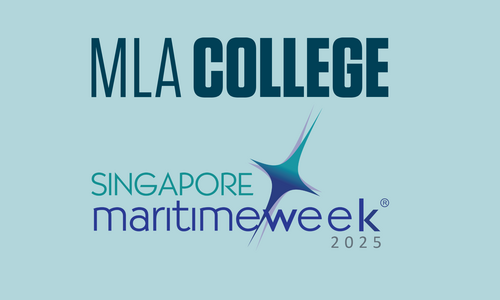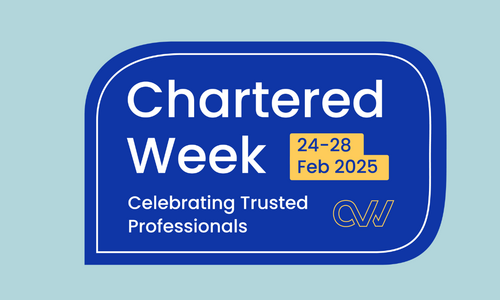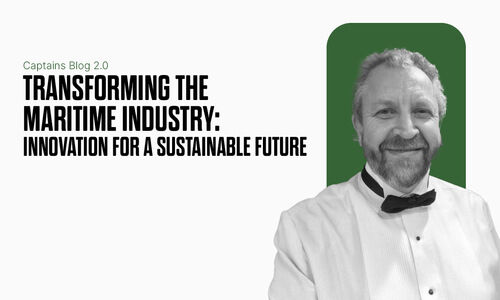

At MLA College, we believe in the power of education to transform careers and industries. That’s why we’re excited to share this insightful conversation with Dr. Sajid Hussain HonDSc MSc CEng, a seasoned maritime professional, educator, and industry leader. With over four decades of experience in seafaring, engineering, and academic leadership, Dr. Hussain has been at the forefront of maritime education and innovation. In this Q&A, he shares his journey and explains why investing in maritime education is the key to a thriving future for the industry.
Q1. What first inspired you to pursue a career in maritime engineering and become a Chartered Engineer (CEng)?
My passion for maritime engineering was sparked at an early age by a fascination with machines and river steamers, further fueled by the emergence of Bangladesh’s first ocean-going vessel, MV Banglar Doot (Ambassador of Bangladesh), in 1972. Inspired by senior cadets at Rajshahi Cadet College (Regimental Boarding School) applying to Bangladesh Marine Academy (BMA), I eagerly pursued the same path, joining BMA in 1978 for a four-year Marine Engineering course. I was honoured to be appointed Chief Cadet Captain in senior year. My training included serving as a Cadet Engineer aboard MV Banglar Kakoli (sweet sound of Bangladesh) for about 17 months; followed by a steady rise to Chief Engineer after earning my Class-I Marine Engineer Officer (MEO) Certificate in the UK in 1989.
My journey towards becoming a Chartered Engineer (CEng) and Chartered Marine Engineer (CMarEng) was a natural progression, guided by my long-standing association with IMarEST since 1990. IMarEST played a pivotal role in my professional growth, offering a global network, technical resources, and continuous learning opportunities. Over the years, I was honored to achieve:
Q2. Can you share some key experiences that shaped your career?
My career has been shaped by a deep commitment to maritime education and industry advancement. After 13 years at sea, I transitioned to Bangladesh Marine Academy (BMA) in 1993, where I dedicated three decades developing 4,500 Cadets including 125 Females — serving as Senior Engineer Instructor (1993-1995, Chief Engineer (1995–2009), and finally, Commandant (2009–2023). Key milestones of my career include:
My journey has been about bridging tradition with innovation, fostering inclusivity, and ensuring that maritime education in Bangladesh meets global standards. My mission remains the same: to prepare maritime professionals for the future.
Q3. How has higher education influenced your approach to maritime engineering and innovation?
Education is more than just acquiring knowledge—it teaches us to question, innovate, and seek continuous improvement. This philosophy has guided my career, and I firmly believe that the next generation of maritime professionals must embrace lifelong learning to shape the industry’s future. Key influences include:

Q4. What unique skills and qualifications do you bring to the maritime industry?
My greatest strength lies in the versatility and depth of my experience, spanning seafaring, academia, leadership, policy-making, and global maritime advocacy. Key qualifications and skills include:
With a blend of operational expertise, academic leadership, and global advocacy, I am committed to ensuring a resilient, sustainable, and technologically advanced maritime industry.

Q5. Why do you believe investing in maritime education is crucial for the future of the industry?
The maritime industry is the lifeline of global trade, responsible for moving over 90% of the world’s goods. Without strong education and continuous training, the industry faces the risk of skill shortages, operational inefficiencies, and an inability to meet global sustainability targets. The future of maritime excellence depends on investing in knowledge, innovation, and talent development today. Investing in Maritime Education Means:
Q6. How do you see technology transforming maritime education and training?
Technology is revolutionizing maritime education and training, making learning more interactive, accessible, and effective. Key advancements include:
As technology transforms ship operations, training must evolve to ensure seafarers are skilled, adaptable, and forward-thinking, blending tradition with innovation for a sustainable maritime industry.
Q7. What advice would you give to aspiring maritime professionals looking to invest in their education?
The maritime industry offers incredible opportunities, but to truly succeed, you have to commit to lifelong learning. Here’s some advice I’d give to anyone looking to build a career in this exciting field:
Smart learning, adaptability, and strategic career investments will open doors to a successful and dynamic future in the maritime sector.

Q8. How can MLA College add value to the careers of maritime professionals?
MLA College is a leading provider of maritime education, offering flexible and innovative learning options that cater to both sea and shore-based professionals. With a curriculum focused on marine engineering, technology, and sustainability, the college prepares students for successful careers in the global maritime industry. Expert faculty, real-world insights, and strong industry connections make MLA College an excellent choice for those looking to upskill, advance their careers, or step into leadership roles. With its online distance learning courses, MLA College is a spontaneous choice of the ‘seafaring students’ at sea!
I remember the early years of MLA College, when it used to be ‘Marine Learning Alliance’ publishing learning articles in IMarEST journals; I was duly benefited in preparing my lectures and notes for the Cadets of BMA.
MLA College offers a unique approach to maritime education, combining flexibility, innovation, and practical, real-world learning. Here’s how it can make a big difference in your career:
In short, MLA College offers a flexible, relevant, and forward-thinking approach that will equip you with the knowledge, skills, and expertise needed to succeed in today’s ever-changing maritime world.
Maritime education is much more than just earning a qualification; it’s about staying ahead in an industry that’s constantly evolving. Whether you’re just beginning your journey or seeking to elevate your career, investing in continuous learning is the key to unlocking exciting, future-ready opportunities. I urge all maritime professionals to embrace the concept of lifelong learning, explore innovative training methods, and seek out institutions like MLA College, which are dedicated to shaping the future of the industry.
A big thank you to MLA College for this wonderful opportunity to share my thoughts. I look forward to seeing the next generation of maritime professionals lead the industry into a bright and innovative future!
About Sajid
Dr. Sajid Hussain HonDSc MSc CEng is currently an IMO Goodwill Maritime Ambassador, a Trustee & Council Member of IMarEST, a chartered engineer through UK Engineering Council, a chartered marine engineer through IMarEST, Chairman of IMarEST Bangladesh, Ex- Commandant (2009-2023) of the Bangladesh Marine Academy, Ex-Governor (2013-2024) of the Board of Governors of World Maritime University in Sweden, and a maritime expert of the IMO and GlobalMET in Australia.
He has authored 26 books, 45 research papers and over 250 features; achieved WMU’s ‘Outstanding Alumnus Award 2023’, IMarEST Award for ‘Outstanding Contribution in Marine Education 2019’, MarEST’s Recognised Speaker status in 2020, IMarEST President’s Commendation 2012 and IMarEST’s Best Paper Award 2007 (Vision of e-Learning & its application into MET).




Receive course information, offers, news and general infromation about MLA, sign up today
MLA College Ltd is a company registered in England and Wales. Registered number: 9188277. Registered office: The Merchant, St Andrew Street, Plymouth, PL1 2AX
copyright 2014 - 2025 - MLA College - Online and Distance Learning Courses.Designed and developed by Vertical Plus